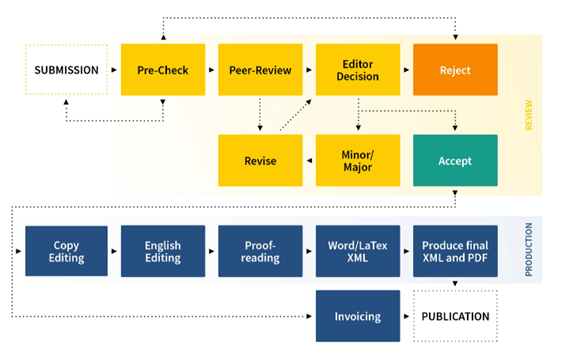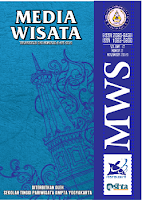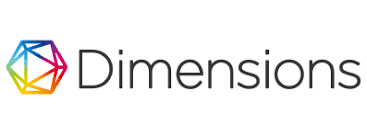About the Journal
Media Wisata
ISSN: 1693-5969 EISSN: 2685-8436 published twice a year on May and November by Sekolah Tinggi Pariwisata AMPTA Yogyakarta, Indonesia.
Media Wisata has been accredited by the Ministry of Technology Research and Higher Education of the Republic of Indonesia.
The publication of this journal is a scientific journal in the field of tourism studies. The manuscript can be research papers, review articles, and conceptual, technical and methodological papers on all aspects, including research findings, experimental design, analysis, and recent tour and travel studies application.
The scope of these areas includes tourism, Community Based Tourism (CBT); hospitality; hotels; tourism marketing, tourism management; travel industry; rural tourism; culture and heritage tourism.
Editorial Process
Media Wisata operates a rigorous and transparent peer-review process that aims to maximize quality. Peer review is handled by researchers and scholars.
We believe that peer-review needs to be efficient, rigorous, and fair for everyone involved.
In the Media Wisata journals, peer-review is a single-blind assessment with at least one independent reviewer, followed by a final acceptance/rejection decision by the Editor-in-Chief, or another academic editor approved by the Editor-in-Chief. The Editor-in-Chief is responsible for the academic quality of the publication process, including acceptance decisions, approval of Guest Editors and Special Issue topics, and appointing new Editorial Board members.
A summary of the editorial process is given in the flowchart below.

Pre-check
Immediately after submission, the journal’s Managing Editor will perform an initial check to assess:
- Overall suitability of the manuscript to the journal/section/Special Issue;
- Manuscript adherence to high-quality research and ethical standards;
- Standards of rigour to qualify for further review.
Peer-review
From submission to final decision or publication, one dedicated Media Wisata staff member coordinates the review process and serves as the main point of contact for authors, academic editors and reviewers.
The process is single-blind for most journals, meaning that the author does not know the identity of the reviewer, but the reviewer knows the identity of the author. Media Wisata journals operate single-blind peer-review, where in addition to the author not knowing the identity of the reviewer, but the reviewer knows of the author’s identity.
Authors can recommend potential reviewers. Media Wisata staff ensure that there are no potential conflicts of interest and will not consider those with competing interests. Authors can also enter the names of potential peer-reviewers they wish to exclude from consideration in the peer-review of their manuscript, during the initial submission of the manuscript.
Open Peer - Review Option
Media Wisata operates an open peer-review option, meaning that the authors have the option to publish the review reports and author responses with the published paper (often referred to as open reports). In addition, reviewers may choose to sign their reports if the review is published, in which case the reviewer name appears on the review report (referred to as open identity). The default option is for reviewers to remain anonymous and for reports not to be published, reviewers and authors respectively must opt into this option. If an article is rejected no details will be published. Open peer-review has the benefit of increasing transparency about the review process and providing further information about the paper for interested readers. We encourage authors to choose an open review.
Revision
In cases where only minor or major revisions are recommended, Media Wisata staff will request that the author revise the paper before referring to the academic editor. In cases of conflicting review reports, or where there are one or more recommendations for rejection, the academic editor will be requested for their judgement before a decision about revisions is communicated to authors.
Revised versions of manuscripts may or may not be sent to reviewers, depending on whether the reviewer requested to see the revised version. By default, reviewers who request major revisions or recommend rejection will be sent the revised manuscript. All reviewers can access the most recent version of the manuscript via their account in open journal systems (OJS).
Editor Decision
Acceptance decisions on manuscripts can be taken by the academic editor after peer-review once a minimum of two review reports has been received. Acceptance decisions are taken by an academic editor (the Editor-in-Chief, a Guest Editor, or another suitable Editorial Board member). Guest Editors are not able to make decisions on their own papers which will instead be assigned to a suitable Editorial Board member. When making a decision, we expect that the academic editor checks the following:
- The suitability of selected reviewers;
- Ensuring the fair and rigorous review of the manuscript, checking that all substantive issues raised have been adequately addressed;
- Completeness of the manuscript, including compliance with journal format.
Publication
If the manuscript is accepted, the journal’s Managing Editor will confirm this decision with the authors, with an estimate of the expected publication date. Authors may be asked to correct minor formatting or typographical errors prior to final publication. In some cases, the journal will provide editing services, including language editing if necessary, at no additional fee, and if requested, they are also provided with guidance on improving the English quality of their manuscript. When proofs are ready, authors are provided with the opportunity to review the proofs before final publication. The Journal will carry out an additional final review for completeness before publishing the final version.








